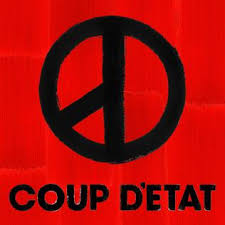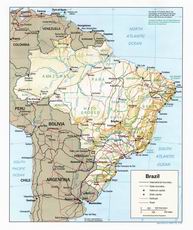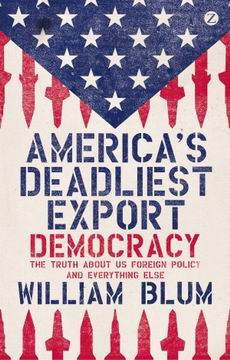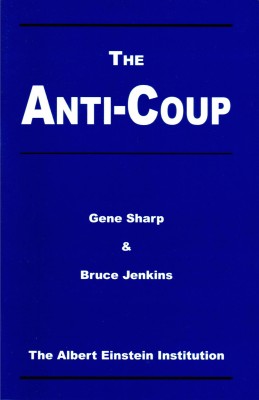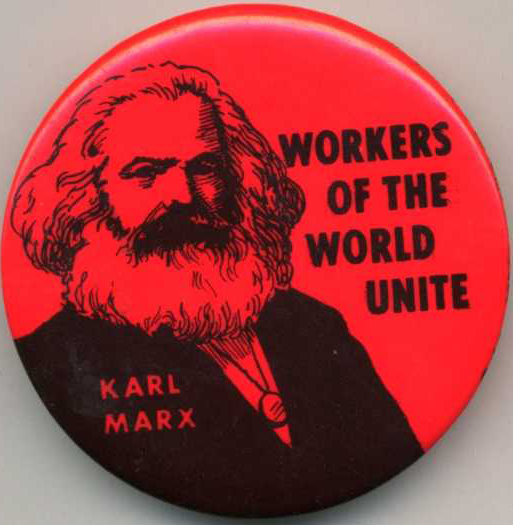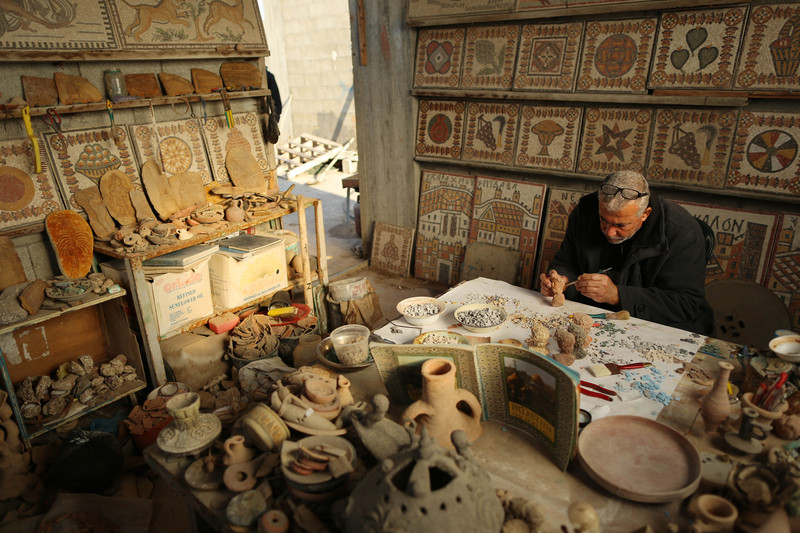Other Voices: The Connexions Newsletter
May 7, 2016
This Issue: Destabilization and Regime Change
People looking at the United States from the outside tend to assume that life is easy when you're an imperialist superpower in command of the world's largest military forces, backed by the world's most powerful economy. With so much power concentrated in your hands, what could possibly go wrong?
More than you might think, in fact. One problem arises from the widespread persistence of the institutions of parliamentary democracy. Modern parliamentary democracies, it's true, have a number of points in their favour. For one thing, they are better at managing public services and the economy than dictatorships, military or otherwise, which tend to be both corrupt and incompetent. And they provide a (somewhat) plausible facade of democratic accountability which helps to disguise the unpalatable fact that almost all important decisions are made behind the closed doors of corporate and institutional boardrooms.
But the trouble with democratic forms like voting and elections is that every so often, real democracy breaks out and propels parties and people to office who don't play by the rules of the game. The most outrageous offence, from the perspective of imperial power, is pursuing policies that help ordinary people at the expense of transnational corporations and local elites.
When a government goes so far as to govern in the interests of its own population, it clearly has to be stopped. The mainstream media – those owned by the local elite as well as those in the imperial centres – start to churn out propaganda, day after day, about the 'extremism' of the government, now referred to as a 'regime.' Western NGOs, funded by the U.S. government and activist billionaires, become a funnel for money that is poured into the country to pay for a massive destabilization campaign. Meanwhile the U.S. embassy intensifies its ongoing contacts with opposition leaders and military officers, many of whom have been trained and indoctrinated in the United States.
The goal of a destabilization campaign is to overthrow an elected government without having to resort to direct outside military intervention, which looks bad and often fails to produce a stable pro-western regime (e.g. Iraq, Libya). In recent years, the preferred means have been massive funding of conservative middle-class political parties, groups, and media (e.g. Ukraine, Venezuela), and 'constitutional coups.' A constitutional coup is a means of nullifying an undesirable election result by making use of the levers of judicial and executive power to get rid of a leader or government who has too much popular support to defeat via the ballot box. The constitutional coups which overthrew the governments of Honduras in 2009 and Paraguay in 2012 are examples, as are the current attempts to impeach the elected presidents of Brazil and Venezuela. One might also include the American Supreme Court decision after the 2000 election, which handed the election to George W. Bush, and Stephen Harper's proroguing of the Canadian Parliament in 2008, aided and abetted by the unelected and unaccountable Governor-General, as instances where 'constitutional' means have been used to set aside election results.
Destabilization and regime change are the focus of this issue of Other Voices. We feature a number of articles and books, as well as Bill Blum's handy list of the instances since 1945 when the U.S. has overthrown, or attempted to overthrow, a foreign government. We also feature "The Anti-Coup", by Gene Sharp and Bruce Jenkins, which outlines strategies and tactics which popular movements can use to prevent and block coups d'état and executive usurpations of power.
As always, we invite you to share this newsletter with your friends. You can forward this email, or send them the link to the Other Voices home page on the Connexions website at www.connexions.org/Media/CxNewsletter.htm.
If you'd like to subscribe and receive this newsletter by email every two weeks, please use this form.
Your feedback is appreciated - and so are donations to keep us doing what we're doing!

Topics of the Week
Destabilization and Regime Change
The articles in this issue cover only a few examples of the countless interventions by the United States designed to undermine and overthrow governments which challenge the will of the U.S. and the local elites which the U.S. supports. The Connexions Subject Index has many more articles and books documenting such attempts – many of them successful – under Destabilization and Regime Change.
This Week on Connexions.org
The Return of the Coup in Latin America
Venezuela and Brazil are the scenes of a new form of coup d'etat that would set the continent's political calendar back to its worst times. Meanwhile, in Argentina, the brutal model for the demolition of democracy is set forward by the continental oligarchic right and the hegemonic forces of US imperialism who wish to impose their model in the region. Read more
Keywords: Regime Change – U.S. Imperialism
The struggle of Venezuela against 'a common enemy'
Washington wants to get rid of the Venezuelan government because it is independent of US designs for the region and because Venezuela has the greatest proven oil reserves in the world and uses its oil revenue to improve the quality of ordinary lives. Venezuela remains a source of inspiration for social reform in a continent ravaged by an historically rapacious US. Read more
Keywords: Destabilization - Venezuela
Hybrid War Hyenas Tear Brazil Apart
The gloomy and repulsive night when the female President of the 7th largest economy in the world was the prey of choice fed to a lynch mob of hyenas in a drab, provincial Circus Maximus will forever live in infamy. Read more
Keywords: Brazil – Destabilization
Overthrowing other people’s governments: The Master List
A list of the instances of the United States overthrowing, or attempting to overthrow, a foreign government since the Second World War. Read more
Keywords: Coups - U.S. Imperialism
The Anti-Coup
Gene Sharp and Bruce Jenkins provide a detailed outline of strategies and tactics which popular movements can use to prevent and block coups d'état and executive usurpations of power. Read more
Keywords: Coups - Resistance
Website of the Week
Insurgent Notes
An online journal focusing especially on working class movements and struggles internationally. Recent articles look at workers’ resistance in China, Italy, Greece, Bangladesh, Turkey, and the United States. Visit the site
Keywords: Class Conflict - Labour Movement
Book of the Week
Killing Hope: U.S. Military and CIA Interventions Since World War II
By William Blum
Is the United States a force for democracy? William Blum serves up a forensic overview of U.S. foreign policy spanning sixty years. For those who want the details on the U.S.'s most famous actions (Chile, Cuba, Vietnam, to name a few), and for those who want to learn about lesser-known efforts (France, China, Bolivia, Brazil, for example), this book provides a window on what U.S. foreign policy goals really are. Says Blum, "If you flip over the rock of American foreign policy of the past century, this is what crawls out... invasions ... bombings ... overthrowing governments ... occupations ... suppressing movements for social change ... assassinating political leaders ... perverting elections ... manipulating labor unions ... manufacturing “news” ... death squads ... torture ... biological warfare ... depleted uranium ... drug trafficking ... mercenaries ... It’s not a pretty picture. It’s enough to give imperialism a bad name." Read more
Keywords: Central Intelligence Agency - Intervention
Film of the Week
The War on Democracy
This film by John Pilger explores the current and past relationship of Washington with Latin American countries such as Venezuela, Bolivia and Chile. The film shows how US intervention, overt and covert, has toppled a series of legitimate governments in the Latin American region since the 1950s. The democratically elected Chilean government of Salvador Allende, for example, was ousted by a US backed coup in 1973 and replaced by the military dictatorship of General Pinochet. Guatemala, Panama, Nicaragua, Honduras and El Salvador have all been invaded by the United States. Pilger interviews several ex-CIA agents who took part in secret campaigns against democratic countries in the region. He investigates the School of the Americas in the US state of Georgia, where Pinochet’s torture squads were trained along with tyrants and death squad leaders in Haiti, El Salvador, Brazil and Argentina. The film unearths the real story behind the attempted overthrow of Venezuela's President Hugo Chávez in 2002 and how the people of the barrios of Caracas rose up to force his return to power. It also looks at the wider rise of populist governments across South America lead by indigenous leaders intent on loosening the shackles of Washington and a fairer redistribution of the continent's natural wealth. See more
Keywords: Intervention - Latin America
Organizing
The History Behind the Organizer of the Water War
Oscar Olivera, a factory worker, was one of the key organizers of the water war in Cochabamba, Bolivia, in 2000. Olivera says that his experience as a worker and a member of a union taught him how to organize in order to protect and defend the rights of working people. He says that true revolutionaries are like children and that their creativity and joy can change the world. Read more
Keywords: Organizing – Resistance
People's History
Remembering Argentina's Mothers of the Disappeared
On April 30, 1977, Azucena Villaflor de Vincenti and a dozen other mothers gathered in the Plaza de Mayo in Argentina’s capitol city to demand justice for their children, who had been 'disappeared' by the military junta during the Dirty War period - a reign of terror, backed by the United States, that would last from 1976 to 1983. A tense atmosphere of fear pervaded the years of the military regime in Argentina. Opposition was not tolerated; tens of thousands of people were simply 'disappeared.' Read more
Keywords: Disappeared Persons - Human Rights Abuses
From the Archives
Mapping American Social Movements Through the 20th Century
This collaborative project features maps and other visualizations showing the chronological geography of dozens of social movements that have influenced American life and politics during the 20th century, including radical movements, labour movements, women's movements, civil rights movements, environmentalist movements, and more. The project is intended to explore the relationships between social movements by bringing them together in time and space, and to enable new understandings of how social movements interact and how they reproduce and change over time. Read more
Keywords: Historical Geography - Left History
The hidden treasures of Gaza
A small room on a rooftop in the occupied Gaza Strip’s crowded Beach refugee camp resembles a miniature archaeological museum. It is the workshop of Nafez Abed, 55, who studies archaeological artifacts in order to replicate them in exquisite detail. Abed copies antiquities photographed in history books and ones he’s seen during visits to archaeological sites across Gaza, which many a civilization has passed through, as well as in other Arab countries and Europe. Read more
Keywords: Gaza - Artifact Conservation/Restoration
Connexions Calendar
May 1 - 22, 2016 - Toronto
Photography Exhibition: In/visible Scars - Torture Survivors in Canada
The exhibition tells the story of eight people who now call Canada home. They hail from around the world, have all experienced the horror and devastation that torture wreaks on individuals and families, and have undergone the transformation from victim to survivor to activist.
May 7 - 15, 2016 - International
Global Wave Of Resistance To Keep Coal, Oil, Gas In The Ground
An international mobilization to keep fossil fuels in the ground and accelerate a just transition to 100% renewable energy and a sustainable future for all.
May 12 - 14, 2016 – Quebec City
Canadian Association of Labour Media (CALM) conference
If you're responsible for your union's communications, you do not want to miss this conference. CALM is the only organization that brings labour communicators together, across unions, regions and sectors, to strategize and learn about how to improve labour communications..
May 14 - 15, 2016 - International
World Migratory Bird Day
World Migratory Bird Day (WMBD) is an annual awareness-raising campaign highlighting the need for the conservation of migratory birds and their habitats. Each year, on the second weekend in May, people around the world take action and organize public events such as bird festivals, education programs, exhibitions and birdwatching excursions to celebrate WMBD. However, countries or regions observing the peak of migrations at other times of the year are encouraged to celebrate WMBD when it is most appropriate for them.
May 15 - 22, 2016 – Washington DC & elsewhere
Rubber Stamp Rebellion
On May 15 - 22, in Washington, DC, and elsewhere where people are fighting fracking and fracking infrastructure, BXE and our allies will take coordinated action for the Rubber Stamp Rebellion. We will say to the Federal Energy Regulatory Commission (FERC): Stop rubber-stamping gas industry permit applications and change the way you operate. Prioritize the emergence of wind, solar and other renewables above fossil fuels. We say: No New Permits!
The Connexions Calendar is an online calendar that exists to advertise events that support social justice, democracy, human rights, ecology, and other causes. We invite you to use it to promote your events. Adding events to the Connexions Calendar is FREE. We'll give you a username and password which you use to log on. Use the contact form to arrange for a username and password. Read more →
Seeds of Fire
May 7, 1839
The Chartists
The Chartist campaign in Britain – named after the People’s Charter of 1837, demanding democratic reform – culminates in the presentation of a huge petition to the House of Commons. The petition is perhaps the most comprehensive expression of the popular will seen in Britain to that point: more than 1,280,000 people have signed it.
May 7, 1954
Battle of Dien Bien Phu
After a two-month battle, Viet Minh resistance forces inflict a decisive defeat on the French army at Dien Bien Phu in central Vietnam. Thousands of French soldiers are killed, more than 10,000 are taken prisoner. The Vietnamese victory marks the end of the French Empire in Indochina.
May 9, 1934
The 1934 Waterfront Strike
Start of the 1934 Waterfront Strike on the west coast of the United States. Longshoremen in every port on the west coast walk out; sailors on the ships go on strike a few days later. The employers bring in large numbers of strikebreakers, housing them on ships moored offshore or in fortified compounds. Many Teamsters refuse to handle cargo loaded by scabs, leaving the goods stranded. After a bloody police attack on striking workers in July, a general strike is called in San Francisco and Oakland. The strike eventually ends in a settlement in which both employers and workers gain on some issues and lose on others. For the workers, one of the most important victories is the recognition of their unions and the end of employer-run hiring halls.
May 10, 1857
The Indian Rebellion of 1857
Start of the Indian Rebellion of 1857, also known as the Sepoy Rebellion and India’s First War of Independence. Indian soldiers serving in the British East India Company’s military forces rebel against the way they are treated. The revolt spreads through much of the country and is put down by the British only with great difficulty after more than a year. The large scale of the rebellion, and the popular support it receives in many areas, make it into a virtual national revolt against colonial rule.
May 14, 1968
Factory occupations in France
In the continuing May 1968 protests, French workers begin occupying factories, starting with a sit-down strike at the Sud Aviation plant near the city of Nantes on 14 May, then another at a Renault parts plant near Rouen, which spreads to the Renault manufacturing complexes at Flins and Boulogne-Billancourt. By May 16, some fifty factories have been occupied and 200,000 workers are on strike. By May 19, two million workers are on strike; by the following week, it is ten million, roughly two-thirds of the entire French workforce.
May 15 – June 26, 1919
Winnipeg General Strike
The Winnipeg General Strike. Virtually all workers in Winnipeg go out on strike seeking wage increases and recognition for their unions. A Strike Committee co-ordinates the strike and arranges for essential services to continue.
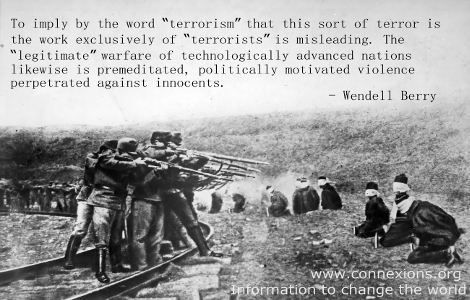
Your support is needed to keep Connexions going
All of the work of the Connexions project is done by volunteers, but our expenses include rent, phone and computer costs and technical support, as well as expenses related to our ongoing project of converting printed archival materials into digital formats. You can make a one time or regular monthly contribution through the donate page on the Connexions website.
Bequests
Many of us have made working for social justice a lifetime commitment. If you are thinking about leaving a legacy for social justice that will live on, you might want to consider leaving a bequest to Connexions in your will. If you'd like to discuss this option, please contact us or see the Bequest page.


